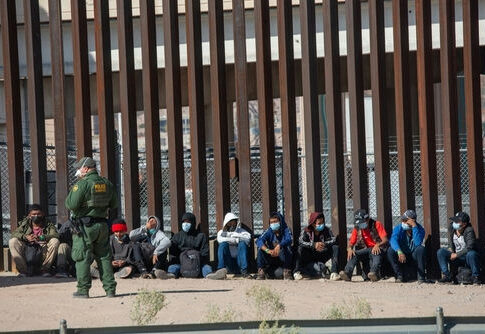Two U.S. Customs and Border Protection officers have admitted to betraying their duty and country by allowing drug-laden vehicles to pass through California border crossings, raising serious concerns about the integrity of U.S. border security.
Betrayal at the Border
Jesse Clark Garcia and Diego Bonillo, both trusted Customs and Border Protection officers, confessed in July 2025 to conspiring with Mexican traffickers. Their method? An encrypted emoji-based messaging system to signal which inspection lanes they were manning at the Tecate and Otay Mesa ports of entry. These officers waved through vehicles carrying vast amounts of illegal substances—fentanyl, cocaine, methamphetamine, and heroin—into the United States. Their treachery underscores the vulnerability of our borders to insider corruption.
This scheme wasn’t just a one-off incident. It was a well-oiled operation that allowed at least 165 pounds of fentanyl, a drug central to the U.S. opioid crisis, to slip through our defenses. The officers didn’t just abuse their positions; they capitalized on them, using the proceeds from their illicit activities for personal luxuries and travel. This is not just a breach of duty; it’s a betrayal that puts countless American lives at risk.
The Sophisticated Smuggling Operation
The U.S.-Mexico border, particularly in California, has long been exploited by drug trafficking organizations. These cartels have become increasingly sophisticated, often recruiting insiders like Garcia and Bonillo to aid their operations. With heightened security measures in place, traffickers have been forced to innovate, and unfortunately, corruption has become a key tool in their arsenal.
Otay Mesa, one of the busiest commercial border crossings, handles over $28 billion in trade annually. It’s a perfect cover for traffickers to blend in their illicit cargo with legitimate trade. While most drugs, including fentanyl, enter the U.S. through official ports of entry, the use of emoji codes by these officers points to the ingenious yet insidious tactics employed by cartels.
The Consequences and Repercussions
The guilty pleas of Garcia and Bonillo have rocked the CBP and the communities they were meant to protect. Both officers are now awaiting sentencing, facing the possibility of life in prison. This case has not only disrupted a major smuggling route but also cast a spotlight on the need for stricter internal controls within border security agencies.
Public trust in the CBP has taken a hit. With border security already a hot-button issue, such incidents fuel the fire for those demanding reform and accountability. The agency is now under increased scrutiny, and there are calls for enhanced screening procedures and background checks to prevent such breaches in the future.
Broader Implications and Future Outlook
The implications of this scandal are far-reaching. In the short term, there’s an immediate need for CBP to tighten its internal controls and restore public confidence. In the long term, the agency must address the systemic vulnerabilities that allowed such corruption to thrive.
There is no doubt that this case will prompt discussions about border security and drug policy. As traffickers continue to adapt and evolve, so too must our strategies to combat them. The debate over how best to secure our borders while facilitating legitimate trade and travel will likely intensify, as will calls for broader drug policy reforms to address demand.
Sources:
National Drug Intelligence Center
U.S. Customs and Border Protection


